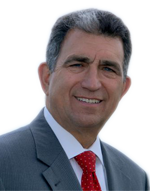Magnarelli Introduces Legislation to Find and Stop Medicaid Fraud
Also creates office of the Medicaid inspector general
Assemblyman Bill Magnarelli (D - Syracuse) announced that he has introduced legislation that proposes an aggressive strategy to combat Medicaid fraud, including more effective accountability measures via the creation of a Medicaid Inspector General, stricter penalties for offenders (A.11498).
“The theft of Medicaid dollars prevents the funds from going where they should – to care for the sick, disabled and elderly,” said Magnarelli. “Cracking down on Medicaid fraud will help protect people in need of care as well as taxpayers by stopping theft and exposing deceitful billing practices.”
Creates the office of Medicaid Inspector General
To achieve its goal of eradicating Medicaid fraud, this legislation creates the office of Medicaid Inspector General to detect and combat fraud, waste and abuse in the state’s Medicaid system. Responsibilities of the office include Medicaid auditing and fraud prevention, as well as developing and testing new methods to improve fraud control.
“The Medicaid Inspector General will not only have the authority to detect fraud, but also to pass along information and evidence regarding criminal acts to the Deputy Attorney General for Medicaid Fraud Control as well as to local law enforcement officials,” stated Magnarelli. “This person will also keep state leaders and Medicaid administrators apprised of efforts to prevent, detect, investigate and prosecute fraud, waste and abuse within the Medicaid program.”
Strengthening criminal penalties for Medicaid fraud
“Medicaid fraud is a crime against taxpayers – plain and simple,” said Magnarelli. “We must provide stronger penalties for fraud.”
The current laws do not offer rigid penalties for scamming the Medicaid system. This legislation establishes new health care fraud penalties to send a strong message that stealing health care dollars will not be tolerated. It creates six new crimes to fight Medicaid fraud and help prosecutors do their job. These health care fraud offenses, health care fraud in the first to fifth degree, include corresponding fines and penalties and range from up to a year in jail to up to 25 years in prison.
“Enacting an effective false claims act and providing for a private right of action will allow New York to receive a greater percentage of recovered Medicaid money,” stated Magnarelli. “Fraud is a damaging, corrosive problem within the Medicaid system – but one that can be battled with the right legislation. I urge the Senate and the governor to join us in the fight against Medicaid fraud, and to help us eliminate this costly burden on taxpayers and our health care system.”
